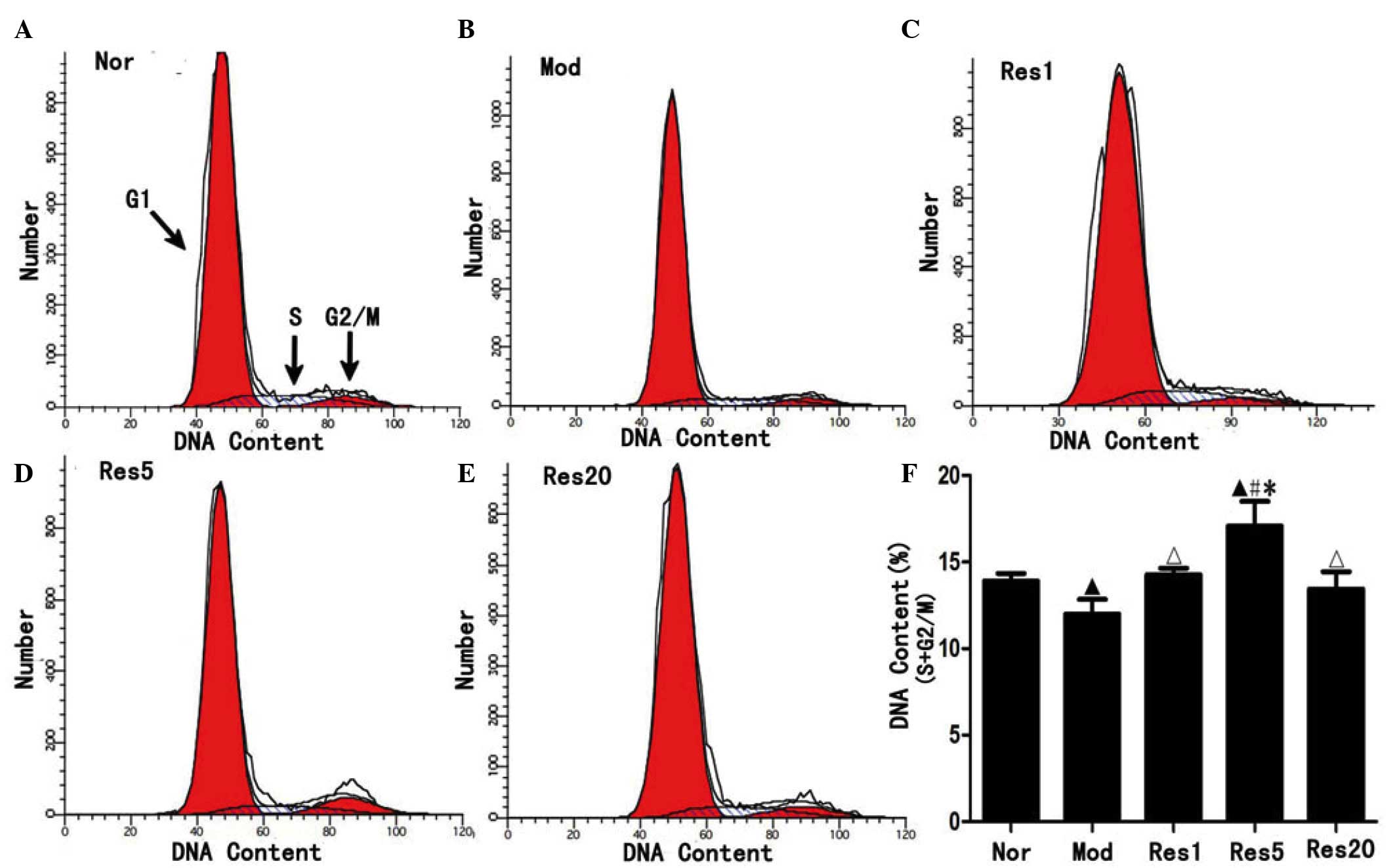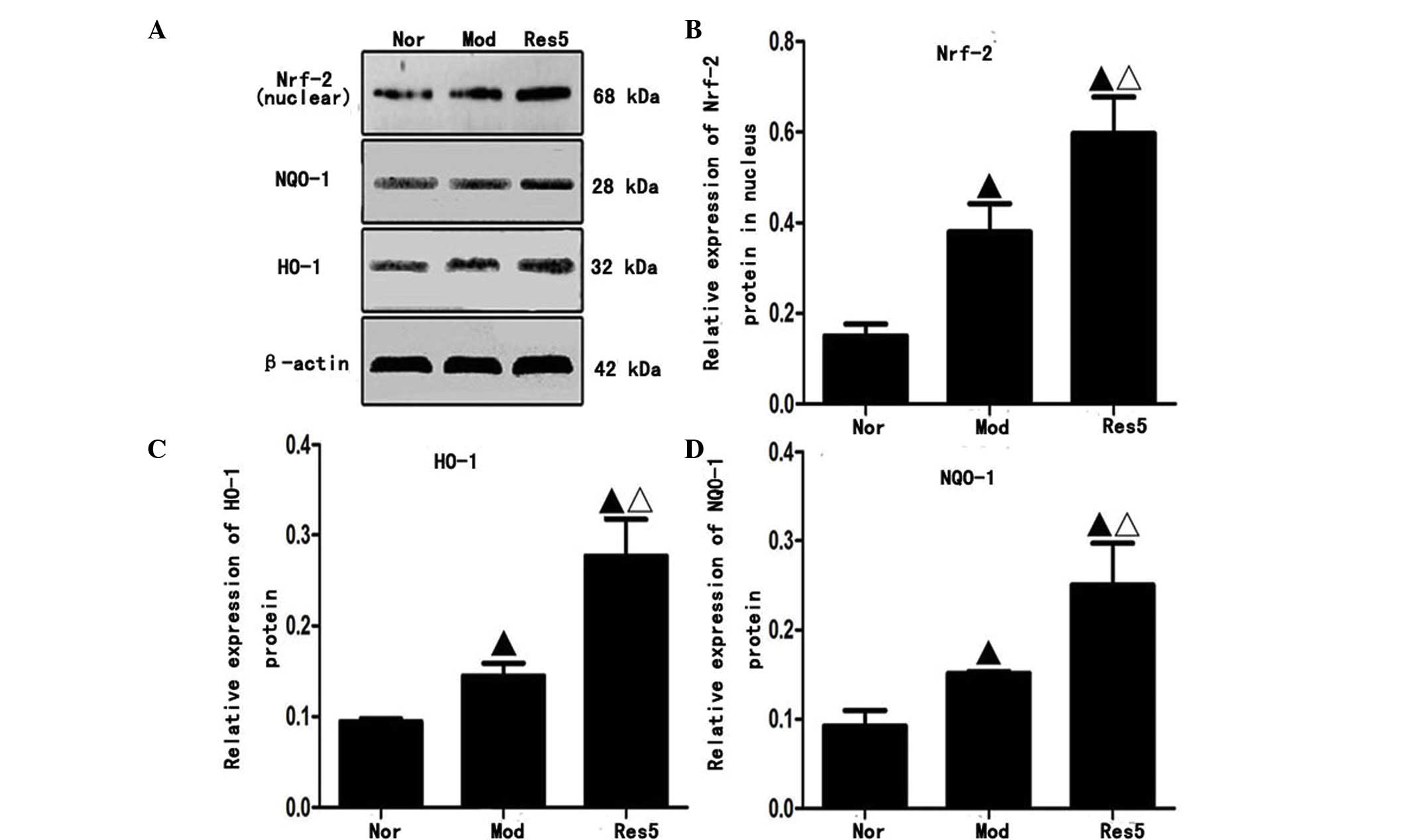|
1
|
Keuters MH, Aswendt M, Tennstaedt A,
Wiedermann D, Pikhovych A, Rotthues S, Fink GR, Schroeter M, Hoehn
M and Rueger MA: Transcranial direct current stimulation promotes
the mobility of engrafted NSCs in the rat brain. NMR Biomed.
28:231–239. 2015. View
Article : Google Scholar
|
|
2
|
Lu P, Graham L, Wang Y, Wu D and Tuszynski
M: Promotion of survival and differentiation of neural stem cells
with fibrin and growth factor cocktails after severe spinal cord
injury. J Vis Exp. e506412014.PubMed/NCBI
|
|
3
|
Sarnowska A, Jablonska A, Jurga M, Dainiak
M, Strojek L, Drela K, Wright K, Tripathi A, Kumar A, Jungvid H, et
al: Encapsulation of mesenchymal stem cells by bioscaffolds
protects cell survival and attenuates neuroinflammatory reaction in
injured brain tissue after transplantation. Cell Transplant.
22(Suppl 1): S67–S82. 2013. View Article : Google Scholar : PubMed/NCBI
|
|
4
|
Tang S, Liao X, Shi B, Qu Y, Huang Z, Lin
Q, Guo X and Pei F: The effects of controlled release of
neurotrophin-3 from PCLA scaffolds on the survival and neuronal
differentiation of transplanted neural stem cells in a rat spinal
cord injury model. PLoS One. 9:e1075172014. View Article : Google Scholar : PubMed/NCBI
|
|
5
|
Liang Y, Walczak P and Bulte JW: The
survival of engrafted neural stem cells within hyaluronic acid
hydrogels. Biomaterials. 34:5521–5529. 2013. View Article : Google Scholar : PubMed/NCBI
|
|
6
|
Walle T: Bioavailability of resveratrol.
Ann N Y Acad Sci. 1215:9–15. 2011. View Article : Google Scholar : PubMed/NCBI
|
|
7
|
Baur JA and Sinclair DA: Therapeutic
potential of resveratrol: The in vivo evidence. Nat Rev Drug
Discov. 5:493–506. 2006. View
Article : Google Scholar : PubMed/NCBI
|
|
8
|
Lin HY, Tang HY, Davis FB and Davis PJ:
Resveratrol and apoptosis. Ann N Y Acad Sci. 1215:79–88. 2011.
View Article : Google Scholar : PubMed/NCBI
|
|
9
|
Sinha K, Chaudhary G and Gupta YK:
Protective effect of resveratrol against oxidative stress in middle
cerebral artery occlusion model of stroke in rats. Life Sci.
71:655–665. 2002. View Article : Google Scholar : PubMed/NCBI
|
|
10
|
Jin F, Wu Q, Lu YF, Gong QH and Shi JS:
Neuroprotective effect of resveratrol on 6-OHDA-induced Parkinson's
disease in rats. Eur J Pharmacol. 600:78–82. 2008. View Article : Google Scholar : PubMed/NCBI
|
|
11
|
Li F, Gong Q, Dong H and Shi J:
Resveratrol, a neuroprotective supplement for Alzheimer's disease.
Curr Pharm Des. 18:27–33. 2012. View Article : Google Scholar : PubMed/NCBI
|
|
12
|
Li Z, Pang L, Fang F, Zhang G, Zhang J,
Xie M and Wang L: Resveratrol attenuates brain damage in a rat
model of focal cerebral ischemia via up-regulation of hippocampal
Bcl-2. Brain Res. 1450:116–124. 2012. View Article : Google Scholar : PubMed/NCBI
|
|
13
|
Madhyastha S, Sekhar S and Rao G:
Resveratrol improves postnatal hippocampal neurogenesis and brain
derived neurotrophic factor in prenatally stressed rats. Int J Dev
Neurosci. 31:580–585. 2013. View Article : Google Scholar : PubMed/NCBI
|
|
14
|
Moriya J, Chen R, Yamakawa J, Sasaki K,
Ishigaki Y and Takahashi T: Resveratrol improves hippocampal
atrophy in chronic fatigue mice by enhancing neurogenesis and
inhibiting apoptosis of granular cells. Biol Pharm Bull.
34:354–359. 2011. View Article : Google Scholar : PubMed/NCBI
|
|
15
|
Ren JW, Fan C, Chen N, Huang J and Yang Q:
Resveratrol pretreatment attenuates cerebral ischemic injury by
upregulating expression of transcription factor Nrf2 and HO-1 in
rats. Neurochem Res. 36:2352–2362. 2011. View Article : Google Scholar : PubMed/NCBI
|
|
16
|
Gorbunov N, Petrovski G, Gurusamy N, Ray
D, Kim doH and Das DK: Regeneration of infarcted myocardium with
resveratrol-modified cardiac stem cells. J Cell Mol Med.
16:174–184. 2012. View Article : Google Scholar
|
|
17
|
Mohagheghi F, Khalaj L, Ahmadiani A and
Rahmani B: Gemfibrozil pretreatment affecting antioxidant defense
system and inflammatory, but not Nrf-2 signaling pathways resulted
in female neuroprotection and male neurotoxicity in the rat models
of global cerebral ischemia-reperfusion. Neurotox Res. 23:225–237.
2013. View Article : Google Scholar
|
|
18
|
Zhang DD: Mechanistic studies of the
Nrf2-Keap1 signaling pathway. Drug metab Rev. 38:769–789. 2006.
View Article : Google Scholar : PubMed/NCBI
|
|
19
|
Ping Z, Liu W, Kang Z, Cai J, Wang Q,
Cheng N, Wang S, Wang S, Zhang JH and Sun X: Sulforaphane protects
brains against hypoxic-ischemic injury through induction of
Nrf2-dependent phase 2 enzyme. Brain Res. 1343:178–185. 2010.
View Article : Google Scholar : PubMed/NCBI
|
|
20
|
Reynolds BA, Tetzlaff W and Weiss S: A
multipotent EGF-responsive striatal embryonic progenitor cell
produces neurons and astrocytes. J Neurosci. 12:4565–4574.
1992.PubMed/NCBI
|
|
21
|
Andersen RK, Johansen M, Blaabjerg M,
Zimmer J and Meyer M: Neural tissue-spheres: A microexplant culture
method for propagation of precursor cells from the rat forebrain
subventricular zone. J Neurosci Methods. 165:55–63. 2007.
View Article : Google Scholar : PubMed/NCBI
|
|
22
|
Babu H, Claasen JH, Kannan S, Rünker AE,
Palmer T and Kempermann G: A protocol for isolation and enriched
monolayer cultivation of neural precursor cells from mouse dentate
gyrus. Front Neurosci. 5:892011. View Article : Google Scholar : PubMed/NCBI
|
|
23
|
Chen T, Liu W, Chao X, Qu Y, Zhang L, Luo
P, Xie K, Huo J and Fei Z: Neuroprotective effect of osthole
against oxygen and glucose deprivation in rat cortical neurons:
Involvement of mitogen-activated protein kinase pathway.
Neuroscience. 183:203–211. 2011. View Article : Google Scholar : PubMed/NCBI
|
|
24
|
Wu X, Zhao J, Yu S, Chen Y, Wu J and Zhao
Y: Sulforaphane protects primary cultures of cortical neurons
against injury induced by oxygen-glucose deprivation/reoxygenation
via anti-apoptosis. Neurosci Bull. 28:509–516. 2012. View Article : Google Scholar : PubMed/NCBI
|
|
25
|
Harada N, Zhao J, Kurihara H, Nakagata N
and Okajima K: Resveratrol improves cognitive function in mice by
increasing production of insulin-like growth factor-I in the
hippocampus. J Nutr Biochem. 22:1150–1159. 2011. View Article : Google Scholar : PubMed/NCBI
|
|
26
|
Park HR, Kong KH, Yu BP, Mattson MP and
Lee J: Resveratrol inhibits the proliferation of neural progenitor
cells and hippocampal neurogenesis. J Biol Chem. 287:42588–42600.
2012. View Article : Google Scholar : PubMed/NCBI
|
|
27
|
Leong CW, Wong CH, Lao SC, Leong EC, Lao
IF, Law PT, Fung KP, Tsang KS, Waye MM, Tsui SK, et al: Effect of
resveratrol on proliferation and differentiation of embryonic
cardiomyoblasts. Biochem Biophys Res Commun. 360:173–180. 2007.
View Article : Google Scholar : PubMed/NCBI
|
|
28
|
Slemmer JE, Shacka JJ, Sweeney MI and
Weber JT: Antioxidants and free radical scavengers for the
treatment of stroke, traumatic brain injury and aging. Curr Med
Chem. 15:404–414. 2008. View Article : Google Scholar : PubMed/NCBI
|
|
29
|
Nassar NN, Abdelsalam RM, Abdel-Rahman AA
and Abdallah DM: Possible involvement of oxidative stress and
inflammatory mediators in the protective effects of the early
preconditioning window against transient global ischemia in rats.
Neurochem Res. 37:614–621. 2012. View Article : Google Scholar
|
|
30
|
Oh YI, Kim JH and Kang CW: Protective
effect of short-term treatment with parathyroid hormone 1-34 on
oxidative stress is involved in insulin-like growth factor-I and
nuclear factor erythroid 2-related factor 2 in rat bone marrow
derived mesenchymal stem cells. Regul Pept. 189:1–10. 2014.
View Article : Google Scholar : PubMed/NCBI
|
|
31
|
De la Lastra CA and Villegas I:
Resveratrol as an antioxidant and pro-oxidant agent: Mechanisms and
clinical implications. Biochem Soc Trans. 35:1156–1160. 2007.
View Article : Google Scholar : PubMed/NCBI
|
|
32
|
Konyalioglu S, Armagan G, Yalcin A,
Atalayin C and Dagci T: Effects of resveratrol on hydrogen
peroxide-induced oxidative stress in embryonic neural stem cells.
Neural Regen Res. 8:485–495. 2013.PubMed/NCBI
|
|
33
|
Maher J and Yamamoto M: The rise of
antioxidant signaling-the evolution and hormetic actions of Nrf2.
Toxicol Appl Pharmacol. 244:4–15. 2010. View Article : Google Scholar : PubMed/NCBI
|
|
34
|
Quincozes-Santos A, Bobermin LD, Latini A,
Wajner M, Souza DO, Gonçalves CA and Gottfried C: Resveratrol
protects C6 astrocyte cell line against hydrogen peroxide-induced
oxidative stress through heme oxygenase 1. PloS One. 8:e643722013.
View Article : Google Scholar : PubMed/NCBI
|
|
35
|
Yang C, Zhang X, Fan H and Liu Y: Curcumin
upregulates transcription factor Nrf2, HO-1 expression and protects
rat brains against focal ischemia. Brain Res. 1282:133–141. 2009.
View Article : Google Scholar : PubMed/NCBI
|
|
36
|
Sakata Y, Zhuang H, Kwansa H, Koehler RC
and Doré S: Resveratrol protects against experimental stroke:
Putative neuroprotective role of heme oxygenase 1. Exp Neurol.
224:325–329. 2010. View Article : Google Scholar : PubMed/NCBI
|
|
37
|
Lin TK, Chen SD, Chuang YC, Lin HY, Huang
CR, Chuang JH, Wang PW, Huang ST, Tiao MM, Chen JB and Liou CW:
Resveratrol partially prevents rotenone-induced neurotoxicity in
dopaminergic SH-SY5Y cells through induction of heme oxygenase-1
dependent autophagy. Int J Mol Sci. 15:1625–1646. 2014. View Article : Google Scholar : PubMed/NCBI
|
|
38
|
Ghanim H, Sia CL, Korzeniewski K, Lohano
T, Abuaysheh S, Marumganti A, Chaudhuri A and Dandona P: A
resveratrol and polyphenol preparation suppresses oxidative and
inflammatory stress response to a high-fat, high-carbohydrate meal.
J Clin Endocrinol Metab. 96:1409–1414. 2011. View Article : Google Scholar : PubMed/NCBI
|
|
39
|
Gurusamy N, Ray D, Lekli I and Das DK: Red
wine antioxidant resveratrol-modified cardiac stem cells regenerate
infarcted myocardium. J Cell Mol Med. 14:2235–2239. 2010.
View Article : Google Scholar : PubMed/NCBI
|



















